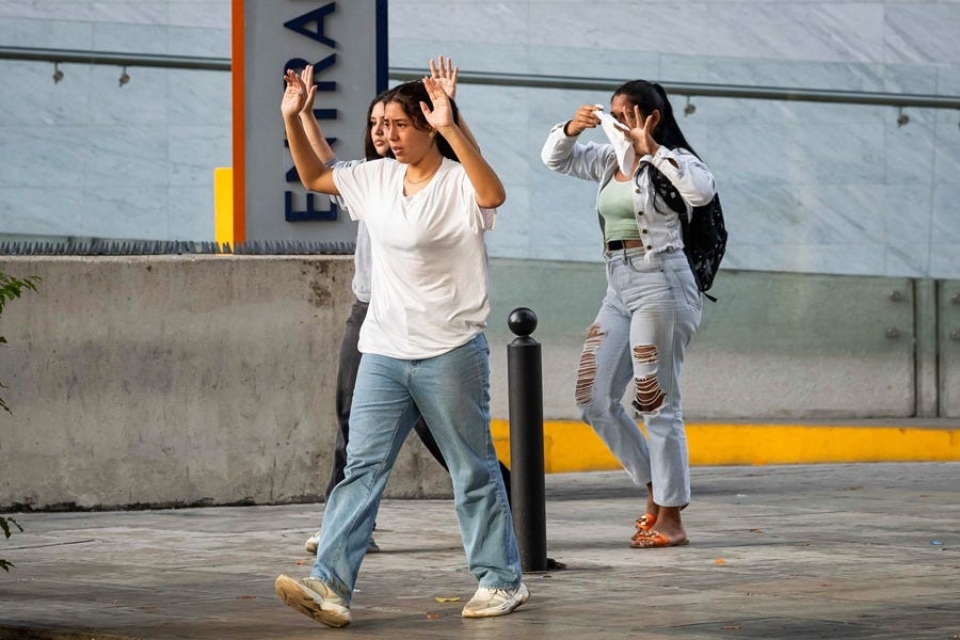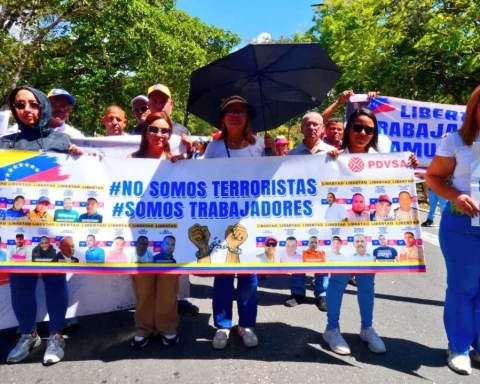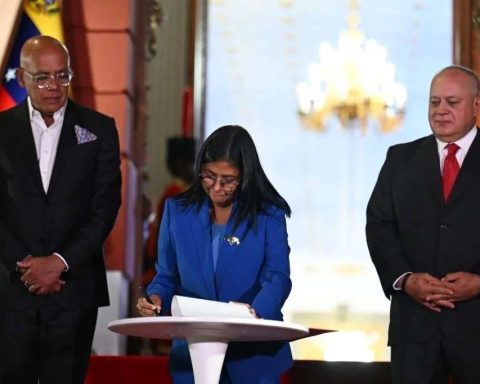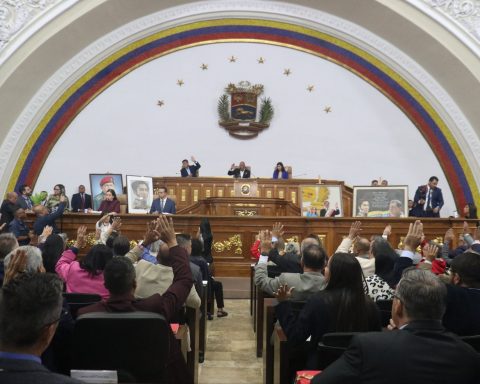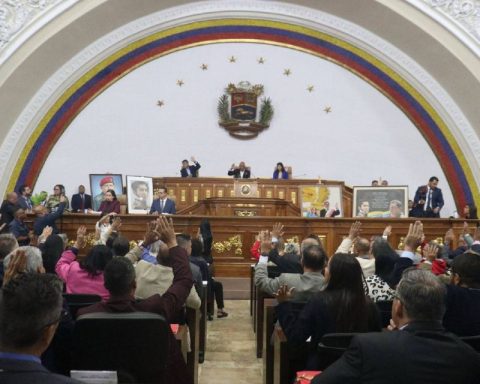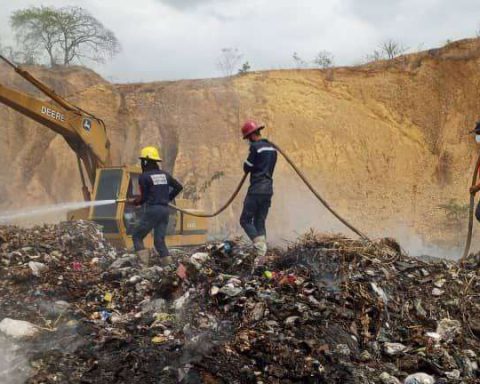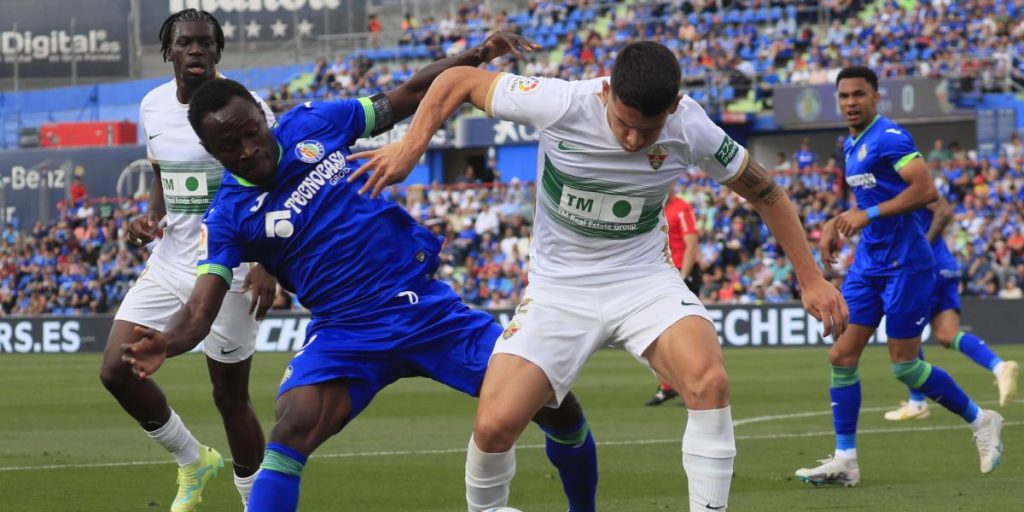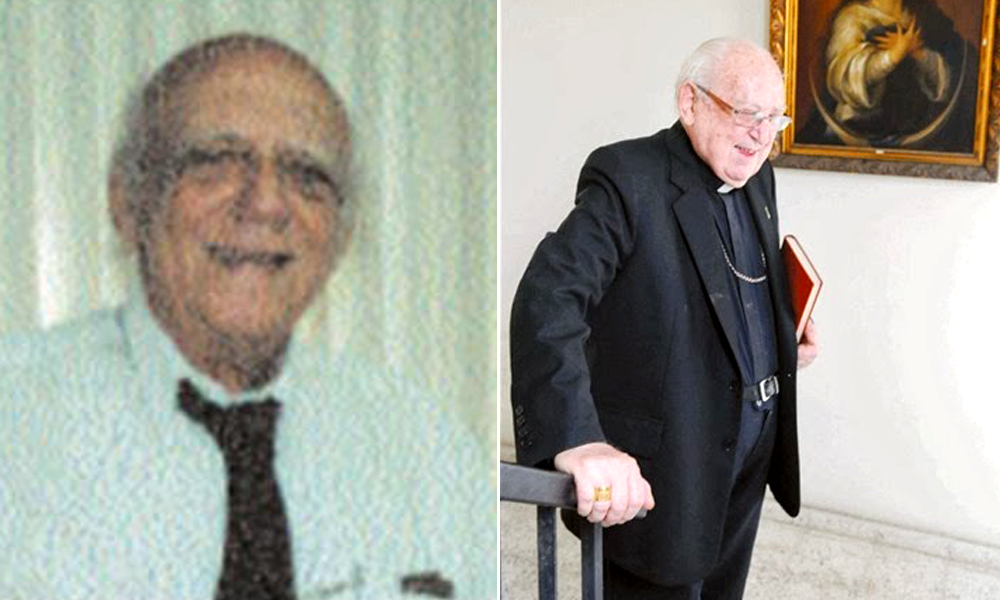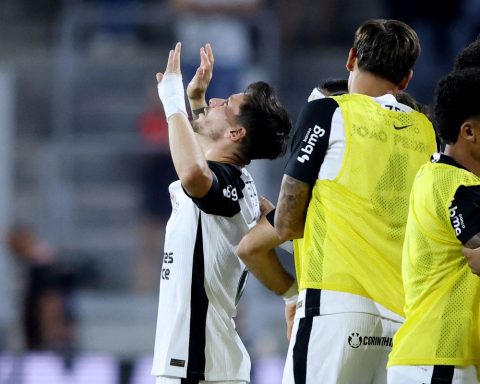Martha Tineo, from Justice, Encounter and Forgiveness, an organization that promotes the defense and documentation of cases related to political prisoners and those killed in protests, said that after July 28, new repressive patterns were evident, such as the prequalification of crimes.
With a smile, tears and applause, Adrián’s* parents welcomed him when he left the courts on September 1. The 17-year-old is one of the 86 young people released from prison, according to the figure released by the Penal Forum.
Adrián* was arrested while walking down an avenue in the city where he lives with his parents. He had never taken part in a protest. During the first hours of his arrest, his parents were unaware of his whereabouts, until they allowed him to make a call at two in the morning.
“Mom, I’m fine,” was the first thing he said, but he couldn’t reveal his location because he didn’t know where he was. After that first call, the parents began to “roulette” around the city.
First he was in a detachment of the Bolivarian National Guard, then he was transferred to an adult detention center and ended up in the National Institute for Minors (INAM). The first nights he was treated badly. “The first days were mistreatment, they left us handcuffed outside and they didn’t give us food,” said Adrián*. The “relief” came when he was transferred to the INAM and they “treated him better,” but the fear was present every day because he was afraid of not getting out.
That reality changed when they received a call from the director of INAM, who said that Adrián* was on the list of teenagers who would go to court and would later be released.
An exit with precautionary measures
Adrian*, like Victoria Morillo16 years old, They claim they were never part of the protests. Although, being part of them does not represent a crime, as stated by the director of Cecodap, Carlos Trapani, in a previous interview with RunRunes.
However, like the 86 children released from prison, they were released with a series of precautionary measures. Adrián* was charged with four counts: terrorism, incitement to hatred, criminal association and obstruction of public roads.
The hearing was held online and was handled by a juvenile judge, the young man’s parents said. After the charges were handed down, they left specific instructions: prohibition of leaving the country, not to offer statements about what happened, a regime of reporting every eight days, for 45 days, and to continue studying.
“It’s a bittersweet battle. We are happy that the boy is with us, but when we think about all the charges and bans, we just think it’s unfair,” said Adrian’s father*.
New repressive patterns
Martha Tineo, from Justicia, Encuentro y Perdón, an organization that promotes the defense and documentation of cases related to political prisoners and those killed in protests, said that after July 28, new patterns of repression became evident.
“There are several points that have been novel. The first of these is that the Attorney General pre-qualified the facts and this is not due. When a person is accused, there should be a prior criminal investigation, but this did not happen and he assured that everyone would be charged. All the people who have been released from prison have been charged,” he said.
Tineo explained that all arrests are considered arbitrary because what is established by Venezuelan law was not complied with And in the case of adolescents it is more serious because the presumption of innocence was ignored and in the first few hours their parents did not know their whereabouts.
In article 529 The Organic Law for the Protection of Boys, Girls and Adolescents (LOPNNA) makes it clear: “No adolescent may be prosecuted or punished for an act or omission that, at the time of its occurrence, is not previously defined in the criminal law, expressly and unequivocally, as a crime or misdemeanor. Nor may they be subject to punishment if their conduct is justified or does not harm or endanger a protected legal asset.”
This is followed by the Organic Code of Criminal Procedure (COPP), which establishes that a person can be detained if they are found committing the crime or after doing so, this is known as detention in flagrante delicto, but NGOs have no evidence that adolescents have been detained under these circumstances.
As reiterated the Access to Justice portalthe Venezuelan Constitution, in its article 44.1, makes it clear: “No person may be arrested or detained, except by virtue of a court order, unless caught in flagrante.”
“These people were not informed that they were going to be investigated, nor was there an arrest warrant. Some were forcibly disappeared for hours, until they were allowed to make a phone call, and all of them were denied a private defense, which is a clear violation of their rights,” Tineo emphasized.
The representative of Encuentro, Justicia y Perdón clarified that in general terms the presumption of innocence was eliminated, as established by the Constitution in article 49, paragraph 2: “Every person is presumed innocent until proven guilty.”
What’s next for those released from prison?
“The released prisoners have specific measures and after the 45 days of presentation regime are over, the Public Prosecutor must decide whether to dismiss the case or whether they will be charged, in addition to whether a trial will be held,” Tineo reported.
The minors are being charged with terrorism, one of the most serious crimes in Venezuela and which can mean up to 30 years in prison. Tineo maintains that, according to the Organic Law for the Protection of Boys, Girls and Adolescents (LOPNNA), the young people could not be convicted of terrorism.
In the case of adolescents who are fourteen years old or older, its duration may not be less than one year or more than five years,” says article 628 of the LOPNNA.
Tineo said that there is still a long way to go before we see what will happen. He also recalled that the law protecting adolescents indicates that -according to the sentence- they must be rehabilitated and reintegrated into society.
28 minors remain in custody
From August 29 to September 1, the Criminal Justice, Encounter and Forgiveness Forum reported on the release of groups of children in different states of the country.
In total, 86 were released from prison, but 28 remain deprived of liberty and their status is unknown.
Some families persist and try to resist what it means to have a son, brother or grandson detained. As Carlos Trapani, from Cecodap, mentioned in a previous interview, responsibilities such as food, hygiene, among others, fall on the closest people and must be sorted out in the midst of the economic crisis that the country is going through.
Beatriz*, a 63-year-old woman, found out that her grandson had been arrested in the early hours of July 29. The 17-year-old was leaving work when he was arrested around 7:00 p.m.
“I found out because a neighbor told me that they took my grandson. He didn’t do anything, he was leaving work, at a car wash, and the neighbors couldn’t do anything. They were all scared,” said Beatriz*.
The anguish intensified when she did not know where he was being held, until she was informed that he had been transferred to another city. “They told us that he had been transferred and we went there. After visiting several centers, they told us that he could be in the INAM,” she said.
Jairo*, after going through several detachments, was transferred to the INAM, they allowed him to see his grandmother and his aunt, his parents are out of the country and he was left in the care of the elderly woman.
“They let us see him on Saturdays and he gets desperate. He feels like they won’t let him go and I tell him to have faith, because it’s the only thing we have left,” said Beatriz.
Little is known about her grandson’s situation.We have no information about his situation.. They only asked us to print and send some documents to the court in Caracas, but they did not arrive on the indicated day and we do not know if that delayed their release. We do not know anything,” he reiterated.
Beatriz hopes that the State will announce new releases and that her grandson will be included in that group. “We have not lost hope in God, he is the only thing we have,” she said.
“As organizations dedicated to the defense of human rights, we have to continue making noise. We have to continue demanding that the authorities comply with the law, continue documenting and hope that these repercussions and this recycling of detainees cease. In the meantime, we must continue denouncing inside and outside Venezuela, hoping that they stop arresting other people and that they release all political prisoners,” concluded Martha Tineo of Encuentro, Justicia y Perdón.
*Some names have been changed for the safety of those involved. Any geographical references have been removed from the text to protect the identity of the sources.
Post Views: 477
